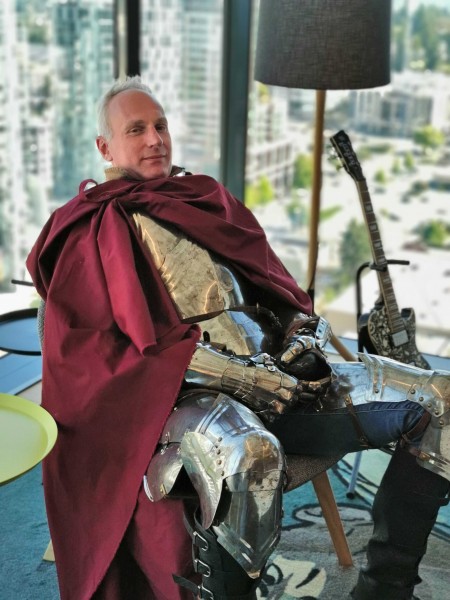
Swen Vincke wasn’t always on top. From basic beginnings and a scrappy, dark path through the often tumultuous games industry, the founder of Larian Studios has gone from sneaking into trade shows to helming one of the most anticipated RPGs of all time with Baldur’s Gate 3. We spoke with Vincke about Larian’s tough climb to greatness.
Let’s begin at the beginning. How did you get into video games?
I got sick. I was also very active. I like basketball. It was at my communion. So, there was a big party, I went to the communion, and lo and behold, together with my cousin, I went and drank all the sips of champagne that the adults have at those. Guess who fell down with the kissing disease a couple of days later? I had a really bad case of mononucleosis, so I was stuck at home.
Somebody took pity on me and gave me his ZX81, which was a 1K computer. I was bored like hell and I was also sick like hell. I picked up … there was a yellow book – I will never forget it – which was Basic, how to program. Since I went to the arcades, I said, “Well, why don’t I make a game in this Basic thing? Let’s see if I can do that.” And so I made my first game.
What was it?
My father was a big-game hunter. I was trying to make a hunting simulator, because he was never home. I wanted to make a game about hunting for him. That was my very first thing, and the second game was a skiing game, because that was easy to do. I then went to the Commodore 64, then Amiga, then PC. I studied programming. I don’t know if you remember a game called Empire. It’s like the granddaddy of turn-based strategy games, and you basically had cities. You could earn resources and create units, and it was randomly generated.
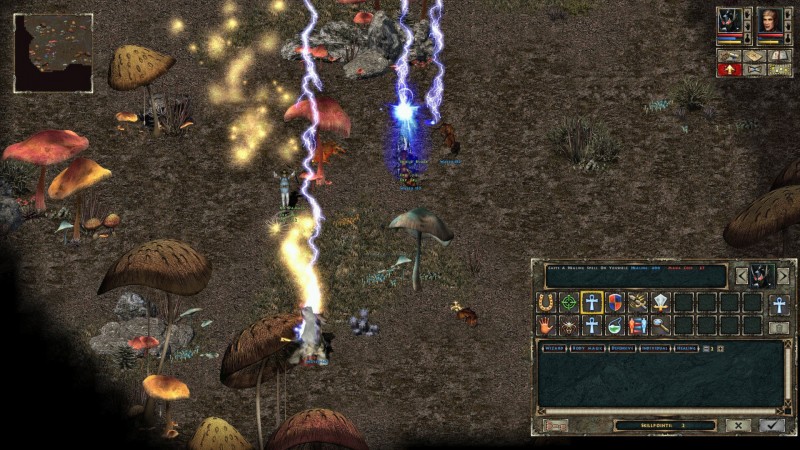
Okay, what happened next?
I traveled to ECTS, which was like a European version of E3. This was in the ’90s, beginning of the ’90s. I bluffed myself in because it was an industry-only event. I had my copies with me and I got an appointment with Atari, which was back then making the Jaguar. They were getting into PC games also. I talked to them. When I walked out of there, I was so nervous, I vomited, but I had the promise of a contract.
A contract right out of the gates?
That contract fell through, and then came a very tough period, where we basically tried to negotiate with all kinds of American publishers and essentially abuse people’s phone lines, because ours had been cut off because we didn’t have any money. We talked to New World Computing, 3DO. We had this little RPG that we were making. At some point, we realized that we have to get some pedigree because nobody took us seriously. We said, “Well, why don’t we make a very small RTS?” This was a time when everybody was making RTS. Yeah, which was easy. “We’ll work on the RTS in the evening and work on the RPG during the day.” We were too ambitious, but we made the RTS. That’s how we actually started in ’96, ’97.
And then?
We had the RPG. It’s a formula which is going to sound very familiar to you. You have a party of different characters that you can disconnect from each other, you can play multiplayer, you can go wherever you want in the world – Ultima V mixed with real-time combat. That became very popular. Well, a lot of things went back to Atari back then, especially if you were in Europe. They saw the game was in development. I mean – I’m not gonna say it was doing fantastic in development. They went to E3, I think it was ’98, and came back and said we have to redo everything. I said, “Why do we have to redo everything?” And they said, “Well, we saw Diablo. We would like to put the story in another universe.”
We started doing it, and they sent their developers to us to help us with the production values. What we didn’t realize is that all the games that they had released were flopping; there was no more money coming into the other side. They said, “Well, we don’t have any money to pay you.” Eventually we got rid of them, and we rebranded [the game]. This is how the first Divinity got born. We signed with another German publisher called CDV, which said the name of the game was Divine Divinity, but I thought they were joking. I thought it was a typo, but I didn’t want to change anything anymore. The marketing departments said this was because alliteration sells well and they had just made a game Sudden Strike. I said, “You’ve gotta be kidding.” But they were not kidding.
I always wondered how it got that name.
Then came the good times. We had money and a publisher that believed in us. We got a new office, everybody was getting paid, the debts were being paid. This was ’99, and the game was supposed to ship in 2001. Suddenly a producer shows up, and says, “I’m here to see if we’re going to cancel the game.” We were far from ready, and I wrote a letter detailing why it was a bad idea to release the game now – it needed six more months, yet it released without us even knowing. I found out about it on a press tour.
We had a really hard time. We were at 30 people, and we had to drop to three people. My nights and days were basically heating up the office and fixing peoples’ save games. It was a horrible time. At the end of 2002 I wanted to quit because I didn’t know what to do anymore. Eventually a bunch of the team got back together, we were 10-11 people and started making Beyond Divinity, with the intent to distribute ourselves. We brought it to market – it was not our best game – but it brought in money.
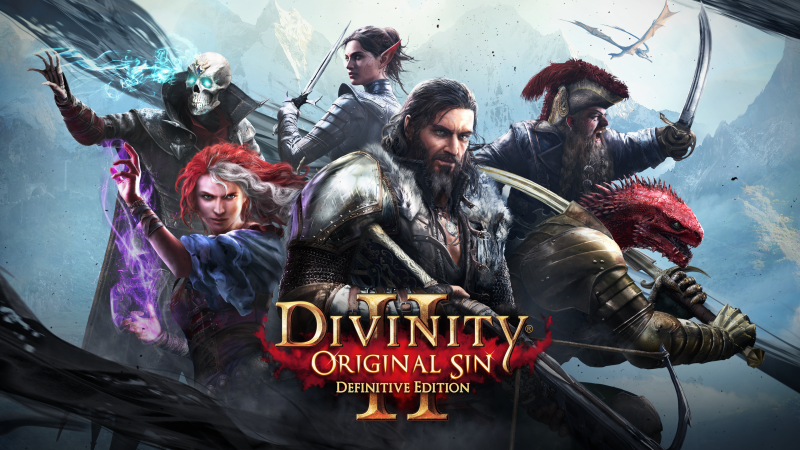
How were you even surviving at this point?
Work-for-hire allowed us to survive to the point to look for a publishing deal, but we hated it. We really didn’t like it because we were making really stupid things. Such as these things go, it’s a vicious spiral. We started doing work-for-hire again, and we were lucky. We convinced a major broadcaster in Belgium to give us a lot of money for what the broadcaster thought was going to be a website, but was actually going to be an online game for kids. It had a unique format, sort of like an American Idol for kids. Kids could make movies, animations, cartoons, and dances in the 3D world, send it to the broadcaster, and then the broadcaster showed it on TV. It was innovative back in the day, and we won awards for it, sold it to the BBC, and sold it to several other broadcasters.
We said, “Why don’t we do a big RPG, but this time we fund it ourselves or as much as we can so that we retain control of the IP?” We didn’t have enough money to do all of it. We needed a publisher. We entered into what is known as a cool publishing deal, except I was still naïve back then. We tried to make a game about a dragon that could fly anywhere and land anywhere. We struggled through that and we found another publisher to help us publish this game. We signed it in 2007. It was supposed to come out in 2008. And then the [financial] crisis hits. This publisher suddenly found itself in incredible financial stress, because they had to make all of their money with games like My Little Pony. All that stuff didn’t sell so they were taking tremendous financial hits. They did what a publisher does in those circumstances; they release a game too early. When [Divinity II: Ego Draconis] came to market it wasn’t ready. It got s— reviews. Almost killed us. Really dark period for the studio.
Coming off of that dark period, how did you regroup?
I asked myself, “What’s the stuff that we’re doing wrong? What is the stuff that we’re doing right?” We need to be in control of ourselves, we don’t work with other people because we iterate too much. We want to change it because we like what we’re playing. If it doesn’t feel right, we change it. It’s why we’re always late with everything we do – that was not the norm back then. Back then when you go to a game convention, it was all about how to better project manage. How to have the right production planning and stuff like that. How to check your boxes. The only words that were not mentioned in all those talks were the games! That just did not work, because we did it out of passion.
Well this is the part where the story becomes good. We said, “We’re going to take everything in our own hands; we’re going to make our own engine, and then make sure that we have our own publishing team, and we do everything ourselves.” That was the thing that we needed to do. Out of Divinity: Original Sin came Divinity: Original Sin II, and out of that came Baldur’s Gate 3. All with our own tech, our own team, publishing ourselves, putting us back in touch with our community, which we had lost with all those publishers. It allowed us to do what we wanted. We literally talk to the players on what they think sucks. [They] help us fix it. And this was a step that no publisher wanted to make.
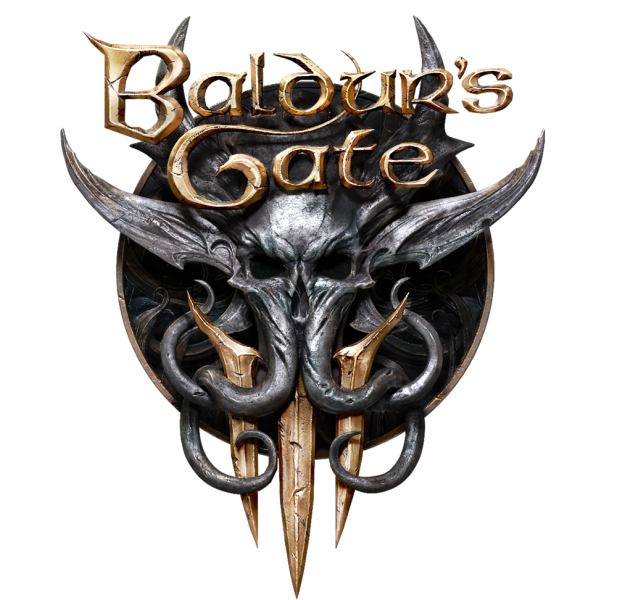
So how did Baldur’s Gate happen out of this?
I wanted to license an RPG system, preferably D&D, preferably Baldur’s Gate. I got in touch with them through somebody I knew from the industry. They put me in touch with Nate Stewart, who was the head of D&D, and so I got kind of an exam. Like, “What will you do with it?”
I was like, “I’m the perfect guy to make it.” And [then there was] nothing. But we kept bumping into each other at every trade show.
Eventually he calls me and says, “Do you still want to do this?” And I said, “Yes!” He invited me to downtown Seattle and in a shady bar he presented to me the full map for Baldur’s Gate 3. It was pretty much everything we had talked about. A couple of weeks later he called me and they said yes. So we needed to present them with a design document as we were making Divinity: Original Sin II.
This whole tale is fascinating. It’s like a fairy tale story of a game studio.
It wasn’t a fairy tale when you were in it. I can tell you that. [laughs]
What was the biggest challenge in going your own way with Divinity: Original Sin?
It’s a mundane answer, but the money. I mean, it’s the fuel that drives development. The challenge for me personally, I’m a creative guy, is without the money you can’t do anything. Balancing your time against finding money to make your games, convincing people and then afterwards doing your thing and trying to keep them away so that they leave you alone to make your thing.
That takes all the time and effort. It’s negative energy. I don’t know how to make a game other than iterating. I just don’t know. I think you have to make it multiple times before you can actually figure out what the game is. Only then can you actually make it good. That doesn’t fit with an accountant out there. People still compare making games to making a house, but that’s a ridiculous comparison. It doesn’t work, and that’s always been the challenge. Now we’re super lucky because ever since Original Sin, we’re free. So we can do whatever we want. It creates a whole bunch of other problems, but none as big as the ones we had before.
So what was one of the biggest changes you made to Divinity: Original Sin during production?
It used to be a real-time game. We made it turn-based. I see that Yakuza has been taking from our book. [laughs]
I asked myself, “What are we doing? We’re making a real-time game because they told us.” Publishers told us that there’s no way you’re going to get your distribution deals if it’s turn-based. It needs to be real-time, blah, blah, blah. We’ve been conditioned into thinking real-time. I was in the shower, I was like, “What are we doing? We’re gonna be competing with Blizzard making an action RPG? We can’t compete with Blizzard, we don’t have the resources. But no one is making turn-based RPGs anymore. So maybe that’s where we should be going.” And that was a really good move.
Did you ever think you wanted to do something other than make games?
Actually, yes. Originally, I wanted to do artificial intelligence, I actually spent quite some time working on voice recognition. That was my original passion. But the video games that I made for my friends, I took so much joy from seeing them have fun with it. To this day, this is why I love PAX. I love sitting at the booth and seeing people play my games. I tend to only look at the negatives of the things that are not working, but I take a lot of joy from them playing.
For Baldur’s Gate 3, how do you encapsulate the entire Dungeons & Dragons system in a video game? Where do you even begin?
It’s really how do we capture the books, the rule system, the feeling you have at the table in a video game, and how do we do that without alienating people that have never played D&D in their lives. Mixing that, I think we found it. You guys will have to judge. You can’t make a game without taking creative risks. You can, but then you’re just making the same game. We’ve taken a lot of creative risks, more than people will expect, I think, considering the amount of money we’re throwing at it.
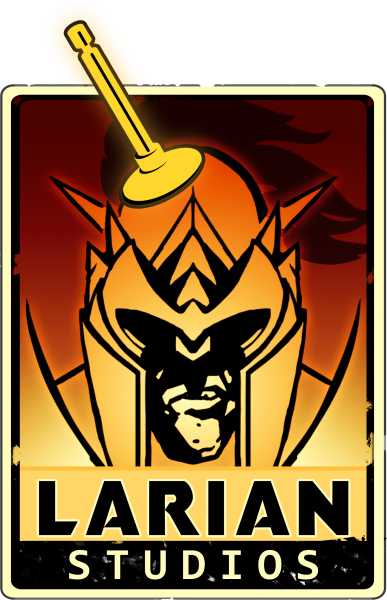
For instance, in Divinity: Original Sin II, you can do almost anything. How do you build a ruleset that can handle all that?
We try to be very consistent about it. “Systemic” is the in-house word. If it’s not systemic, it doesn’t go in. Basically, we learned this over time, one of the errors that we made in our early games was we were so focused on getting the money that we were puting the systems in there as gimmicks so that we were going to convince people to put money into the games, right? We learned that if you put something in a game, it has to be consistent throughout the game, something that you can always use. If you can’t, you shouldn’t put it in there. We’ve gotten better at it over time because one of the criticisms was always [that] we were very ambitious, but [the games were] badly executed. What people start discovering in D:OS, we just make those systems work always. Whenever we put in a new system it has to work with the existing systems, and if you make those complete, you get stuff like this. That’s where the beauty comes from.
One of the developers came to me and was like, “I’m playing with my buddy, and I’m doing the exact opposite of everything he wants to do.” He said, like, “[The other player] is gonna ruin the game.” I told him, “Don’t worry about it. This game has got you covered.”
So why multiplayer?
Where I was born, nobody had a computer. Nobody played D&D, but this was one thing that interested me. My first fantasy books were D&D, Dragonlance, after The Lord of the Rings. They were hidden in an obscure corner in the library. Nobody was really into it, not as much as you guys have over here. I always wanted to play pen and paper. I always wanted to play D&D. When I discovered RPGs, I said, “Well, this is how you should be playing those things, but at a computer and you can play with other people elsewhere.”
Being able to play with your friends has always been a big thing. Pretty much all my early experiments were split screen. The strategy games I made were turn-based that you played with different people. I didn’t have an A.I. actually. It was very natural to do it like this, and to be able to do it online.
So why did you remake the final act of Divinity: Original Sin II?
Because that was the main criticism. It’s become part of the DNA of the studio. We are so engaged with the community from Early Access already, it’s natural to continue doing it. We look at what players like and what they don’t like. We look at where they’re blocked, and then we try to fix it. It’s just part of making it. The idea behind that is like, “Sorry for you, maybe you didn’t have the best experience, but I hope you had a lot of fun.” Maybe the next person doesn’t necessarily have to have the same experience that you had, we can still fix this, especially with how much love the game was getting and how much money it was making, it felt wrong to leave it like that.
This article originally appeared in the November 2019 issue of Game Informer. To see why we love Larian Studios, read our review of Divinity: Original Sin 2.
